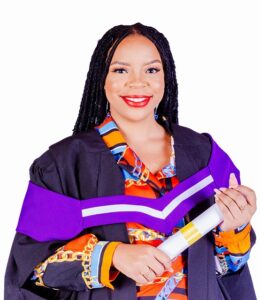Mastering Personal Statements: Translation for Global Admissions
International students enhance diversity in education by navigating unique application requirements for Personal Statements/Statements of Purpose (PS/SOPs). Crafting compelling narratives showcasing academic interests and goals alongside personal exp…….
International students enhance diversity in education by navigating unique application requirements for Personal Statements/Statements of Purpose (PS/SOPs). Crafting compelling narratives showcasing academic interests and goals alongside personal experiences is vital. Professional translation services, focusing on cultural sensitivity and authenticity, ensure PS/SOPs accurately represent applicants' voices while adhering to institutional guidelines. This process highlights international students' unique perspectives, fostering inclusivity in global academic communities.
- Understanding Application Requirements for Personal Statements
- The Role of Translated Statements in International Admissions
- Crafting Effective Personal Statements Across Languages
- Maintaining Authenticity in Translated Statements of Purpose
- Key Elements to Include in Translated Statements
- Common Challenges and Solutions in Translation Process
- Choosing Reliable Translation Services for Academic Papers
- Proofreading and Editing for Fluent, Error-Free Translations
- Building a Compelling Narrative Through Language Conversion
- Success Stories: How Translated Personal Statements Helped Students
Understanding Application Requirements for Personal Statements
Meet application requirements with translated personal statements or statements of purpose starts with a deep understanding of what each institution demands. In the world of international education, where applicants often need to submit documents in multiple languages, it’s crucial to grasp the specific guidelines for Personal Statements / Statements of Purpose (SoP). Each university or program may have unique expectations regarding content, format, and length.
Delve into the application requirements carefully, as these guideposts are designed to help admissions committees assess your fit for their program. In terms of a personal statement or SoP, focus on crafting a compelling narrative that highlights your academic interests, professional goals, and what makes you a strong candidate. Remember that this is often one of the most important components of your application, so ensure it’s well-translated to reflect your authentic voice and aspirations.
The Role of Translated Statements in International Admissions
In today’s global educational landscape, international students play a vibrant role in enriching campuses worldwide. However, navigating admissions processes can be challenging for non-native English speakers who need to submit personal statements or statements of purpose. These written components are crucial for showcasing one’s personality, academic goals, and motivations—all essential aspects that go beyond test scores and grades.
Translated statements of purpose step into this crucible as a powerful tool, enabling international applicants to present themselves authentically. A well-executed translation not only conveys the content but also respects cultural nuances, ensuring that the original intent and voice remain intact. This approach allows admissions officers to gain insights into the candidate’s background, experiences, and aspirations, fostering a more inclusive and diverse learning environment.
Crafting Effective Personal Statements Across Languages
Crafting compelling personal statements or Statements of Purpose (SOPs) is a critical aspect of any application process, especially when applying internationally where language fluency plays a significant role. When translating these essential documents, it’s crucial to maintain not only grammatical accuracy but also capture the essence and tone that reflects your unique voice and experiences.
Effective personal statements go beyond simply listing achievements or describing your academic journey; they should tell a story about who you are, why you’re pursuing a particular field, and how your background and experiences have shaped your aspirations. This narrative approach must be adapted and translated with care to ensure the statement resonates authentically with the target audience and institution’s values, while adhering to any specific language nuances and cultural considerations.
Maintaining Authenticity in Translated Statements of Purpose
When translating personal statements or statements of purpose for university applications, maintaining authenticity is paramount. While professional translation services can enhance clarity and accuracy, they must capture the nuances and passion that make your essay unique. A simple word-for-word translation may not do justice to your voice and aspirations—it’s crucial to find a translator who understands both the academic context and your personal story.
This involves more than just linguistic proficiency; it requires cultural sensitivity and an appreciation for the subtleties of self-expression. Ensure that your translated statements convey not only your academic goals but also your personality, experiences, and aspirations as they were intended in your original writing. This balance ensures that your application stands out while adhering to the requirements, making a compelling case for your admission.
Key Elements to Include in Translated Statements
When crafting translated personal statements or statements of purpose, it’s crucial to maintain the essence of your original narrative while adapting it for a global audience. These documents are often key components of university or scholarship applications, so ensuring clarity and cultural sensitivity is essential. A successful translation should not only convey your ideas but also capture the passion and motivations that make you unique as an applicant.
In translated personal statements, include core elements such as your academic background, extra-curricular activities, and future goals. Elaborate on why you’ve chosen a particular field of study and how it aligns with your aspirations. Share personal experiences or challenges that have shaped your perspective and motivated your pursuit of knowledge. Additionally, highlight any cultural nuances or international perspectives you can offer, as these often enrich the diversity sought by educational institutions.
Common Challenges and Solutions in Translation Process
Meet application requirements with translated personal statements or statements of purpose can be a daunting task, especially with varying language nuances and cultural contexts. One common challenge lies in preserving the original meaning and intent while ensuring grammatical accuracy and fluency in the target language. Translators must carefully navigate idiomatic expressions, metaphors, and cultural references that might not have direct equivalents.
To overcome these challenges, it’s essential to engage professional translators who are native speakers of the target language. Using advanced translation software and keeping a close eye on context can also help maintain the integrity of the personal statements or Statements of Purpose (SoP). Additionally, peer review and feedback from those familiar with both languages further enhance quality assurance. This meticulous approach ensures that your translated documents not only meet application requirements but also effectively communicate your unique voice and aspirations to admissions committees.
Choosing Reliable Translation Services for Academic Papers
When crafting personal statements or statements of purpose for international applications, selecting a reliable translation service is paramount to ensuring your academic papers are accurately represented. It’s not just about word-for-word conversion; it involves conveying your ideas and experiences in a way that resonates with the target audience. Look for professional translation services that specialize in academic documentation and have a proven track record.
Check if the service offers native-level proficiency, as this guarantees fluency and natural phrasing in the target language. Additionally, verify their expertise in your field of study to ensure technical terminology is handled correctly. Reputable translation companies often provide quality assurances, editor reviews, and even student testimonials, giving you confidence that your personal statement will be of the highest caliber when submitted alongside your application.
Proofreading and Editing for Fluent, Error-Free Translations
When translating personal statements or statements of purpose for application purposes, it’s crucial to go beyond mere word-for-word translation. Accurate and fluent translations require meticulous proofreading and editing to ensure they convey the original meaning and tone perfectly. This process involves rigorous checking for grammatical correctness, fluency, and natural phrasing in both the source and target languages.
Editing ensures that the translated statements are error-free, maintaining the integrity of your ideas and experiences. It also helps to adapt the content to cultural nuances, ensuring it resonates with the intended audience. Skilled translators understand the importance of preserving the essence of your personal narrative while adhering to the specific requirements of each application.
Building a Compelling Narrative Through Language Conversion
Crafting a compelling personal statement or statement of purpose is an art, and when it comes to international applicants, language plays a pivotal role. The process involves more than just translating words; it’s about converting your unique story into a narrative that resonates with admission committees. This is where proficiency in both the source and target languages becomes invaluable.
By bridging the linguistic gap, skilled translators can ensure your essay’s intent and meaning remain intact. They don’t merely replace words; they carefully select equivalents that capture the essence of your experiences, aspirations, and motivations. This process demands a deep understanding of cultural nuances, allowing for a seamless transition from one language to another while preserving the integrity of your personal statements/statements of purpose.
Success Stories: How Translated Personal Statements Helped Students
Many students worldwide have successfully navigated the application process for universities and graduate programs by incorporating translated personal statements or statements of purpose (SOPs). These documents play a pivotal role in showcasing one’s personality, experiences, and aspirations to admission committees. When well-crafted and accurately translated, they can set applicants apart from their peers.
Success stories abound of students who have been accepted into top-tier institutions thanks to compelling personal statements. For non-native English speakers, translating these essential documents is crucial. Professional translation services ensure that the meaning and nuances are preserved, allowing applicants to present themselves authentically. This process has opened doors for students from diverse linguistic backgrounds, enabling them to contribute unique perspectives to academic communities.
In navigating international admissions, translated personal statements and statements of purpose play a pivotal role in meeting application requirements. By understanding the nuances of different languages and cultures, students can craft compelling narratives that resonate with admission committees. Through reliable translation services, maintaining authenticity becomes feasible, ensuring your personal journey is accurately represented. This comprehensive guide highlights key elements, offers solutions to common challenges, and shares success stories, empowering students to excel in their academic pursuits globally.



